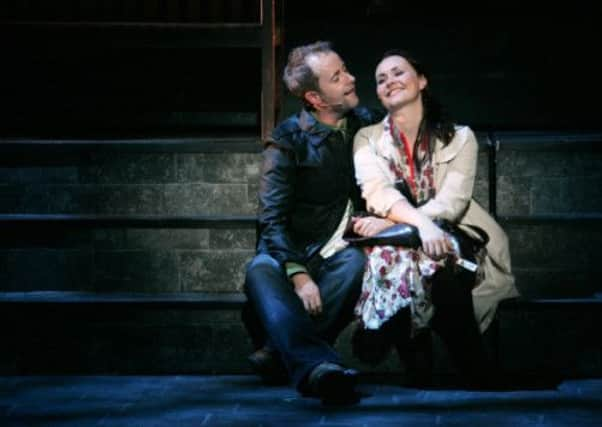Sunshine on Leith is Dundee Rep’s baby


The reviews are generally warm, unable to resist the show’s gorgeous, positive vision of Edinburgh and Leith, and the rich humanity of the songs; the Proclaimers themselves, Craig and Charlie Reid, are said to be delighted.
Yet in all the coverage, there are two words that do not appear at all, apart from a solitary mention in a news story by The Scotsman’s Brian Ferguson; those words are “Dundee Rep”, the theatre that commissioned, nurtured, and first staged this show, back in 2007, in a memorably inventive and joyous production by the then artistic director James Brining, now in charge of West Yorkshire Playhouse in Leeds. It was the Rep – with its multi-talented ensemble of actors – that worked with writer Stephen Greenhorn to develop the show, and forged the script and the music into a fast-moving, beautifully staged production, with choreography by Lizzie Gee and set by Neil Warmington. And it was the Rep that then took the risk – and the eventual financial loss – involved in scaling up the show for a UK mainstage tour, which played to packed houses at the Festival Theatre in Edinburgh at Christmas 2008, but did less well south of the Border.
Advertisement
Hide AdNow it’s not – let’s make it clear – that Dundee Rep is complaining about this lack of recognition. It remains a hugely successful theatre. It is well supported by Creative Scotland, Dundee City Council and other funding bodies; and the development of new Scottish work that will go on to find a wider audience is one of its key roles, which it is publicly funded to fulfil.
What is perpetually frustrating, though, is the extent to which Scotland’s cultural community fails to reap the full benefit of the rich and often world-beating theatrical life that has developed in this country since the 1960s, simply because theatre’s visibility in the general public conversation remains so low. The reasons for theatre’s relatively low salience are complex, ranging from the emphemeral quality of the experience itself, to the contested history of professional theatre in Scotland, where the art-form was frowned upon in many parts of the country for centuries after the Reformation, and often became closely associated, in the public mind, with touring productions from London. And the situation is a fast-changing one; there’s no doubt that the coming of the National Theatre of Scotland in 2006, and the emergence through the Traverse of playwrights with a popular following in Scotland, has begun to transform the place of theatre in our cultural life.
For every Sunshine On Leith, though, I’m aware there are dozens of shows created in Scottish theatre, every year, that could have a similar impact on our shared life in Scotland now, if only they were more widely seen, discussed and reflected upon. And the low profile of all this creative activity is not a loss to theatre, which is now an art form much appreciated by audiences and funders, not least for its key role as a hot-house and laboratory for talent. It’s rather a loss to our wider culture, which has in its midst a gem of a place like Dundee Rep, with the capacity to help generate one of the most uplifting tribute musicals ever made; but somehow prefers to turn a blind eye to all that creative richness, as if a phenomenon like Sunshine On Leith, in its present form, had simply come to us from elsewhere, courtesy of the commercial stage, and the global film industry.